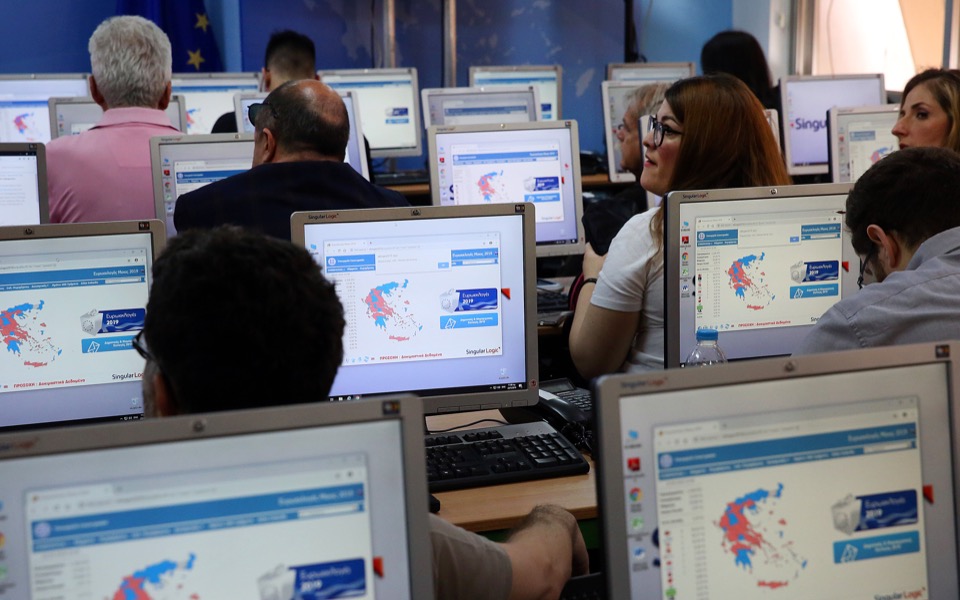Despite the stakes at Euro polls, focus in Greece is on challenges at home

About 400 million citizens in all 28 European Union member-states are heading to the polls this week to cast their ballots for the bloc’s only directly elected body: the European Parliament.
With a number of challenges – including a meteoric rise of populist and nationalist rhetoric across the continent, border rows over migrants and an uncertain Brexit scenario looming over the process – analysts have dubbed this year’s election “the most important EU vote” in the body’s history.
In Greece, however, the European Parliament elections are perceived as a largely domestic affair, a prognosis ahead of the national polls to be held on or before October 20. Apart from selecting the 21 lawmakers they will be sending to Brussels and Strasbourg, Greeks are also heading to the polls on Sunday to elect their representatives at the country’s local authorities in the country’s first municipal and regional election since 2014.
As a consequence, public discourse has largely shied away from pan-European issues, focusing instead on domestic challenges and highly polarizing political jabs between Alexis Tsipras’ governing SYRIZA party and main opposition New Democracy, led by Kyriakos Mitsotakis in his first ever electoral challenge as party leader.
The recent government handouts and relief measures have dominated the discussion, with New Democracy accusing SYRIZA of opportunism and vote pandering.
In spite of a polarized climate, polls indicate a return to the dominance of a two-party system, in contrast to the fracturing and rise of extremism expected to take place in most European countries. SYRIZA – the party that in 2014 had run on a radical-leftist, Euroskeptic platform – has been making steady moves toward the political center, seeking observer status with the European Socialists despite being part of the European United Left – Nordic Green Left (GUE/NGL). New Democracy, which is expected to win both the European and most key regional elections, has maintained its close allegiance with the center-right European People’s Party, being one of the first parties to back Manfred Weber’s candidacy for the presidency of the European Commission. Together, the two parties are projected to win as much as 60 percent of the total vote.
Neo-fascist Golden Dawn, which shocked Europe by electing its first MEPs in 2014, could still claim the third place it secured in the 2014 race. But with a stagnant voter base it risks losing to the center-left Movement for Change, with both parties currently hovering at around 8 percent of the vote. Smaller parties, including the former government coalition partner, Independent Greeks, are projected to be the biggest losers of the new political landscape. With the exception of the Communist Party of Greece (KKE), they are all projected to fall short of the 3 percent threshold required to secure European representation. This includes the ambitious yet largely controversial Yanis Varoufakis, who served as the country’s finance minister during the tumultuous six-month period before the July 2015 referendum. His newly founded pan-European movement, DiEM25, may have gained the backing of the likes of philosopher Slavoj Zizek and actress Pamela Anderson, but it is expected to tank in Greece, securing as little as 1 percent of the total vote.
Whatever the result of Sunday’s polls may end up being, this year’s election season has marked a stark contrast from the doomsday scenarios of the 2014 race, when Greece’s European future was questionable and Euroskeptic parties saw their popularity soar. With almost two-thirds of Greeks assessing that EU membership has benefited the country, according to a recent MRB poll, it seems that Greece has solidified its position in the EU – even if that came at the expense of escalating domestic tensions.





